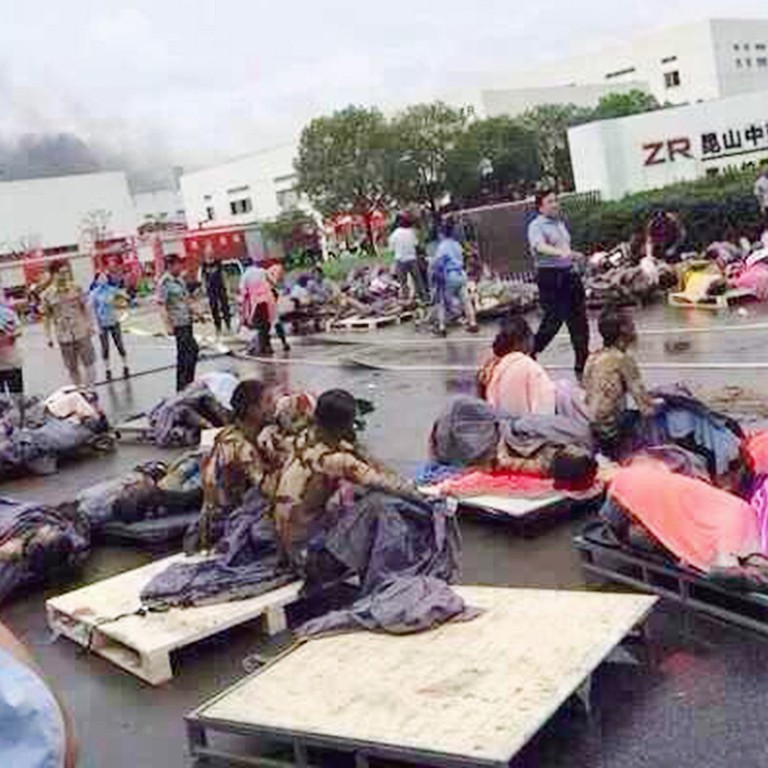
China must foster culture of workplace safety
Occupational health and safety was an early casualty of the mainland's modern development. That it remains so is regrettable.
Occupational health and safety was an early casualty of the mainland's modern development. That it remains so is regrettable. The latest example is the country's worst industrial accident in a year, a blast that left at least 75 dead and more than 180 injured at a Taiwanese-owned car-wheel plating and polishing plant at Kunshan in Jiangsu at the weekend.
A preliminary report speaks volumes about deep-rooted workplace safety issues. It blames the company chairman and local regulators on several counts after a flame ignited metal dust suspended in the air. They included failure to properly store dangerous goods, lack of ventilation or dust-removal systems and fire safety equipment, a substandard electrical system, and a failure to heed warnings about the potential hazard of metal dust and to provide safety training for workers.
It is little wonder that officials concluded that it was a man-made accident for which the company should take the main responsibility, to be shared by local officials who did not conduct proper inspections and enforce industrial safety rules.
President Xi Jinping has demanded harsh punishment for those responsible and Premier Li Keqiang has ordered wider safety checks on dust-control measures. Typically, the authorities send in inspection teams, a few people are arrested, and some local officials sacked or disciplined. Such moves do not address safety, standards and enforcement. All too often, before long everything is back to normal and a similar accident is waiting to happen again. Such tragedies are not confined to dangerous workplaces but can arise from poor maintenance of vital infrastructure, as we are reminded by underground industrial gas explosions that ripped up streets in the Taiwanese city of Kaohsiung on Friday, killing at least 28 people and injuring more than 300. As with an oil pipeline blast that killed 62 people in the eastern mainland port of Qingdao last December, questions have been raised about failure to evacuate people after reports of leaks.
Deterrent punishment for officials and company executives is just one step towards preventing avoidable industrial accidents. Government at the local level has to foster a culture of workplace safety through proper enforcement of regulations and encouraging workers to have a voice in their own welfare. So long as profit and growth are put ahead of safety, China's rise will come at an unacceptable human cost.

